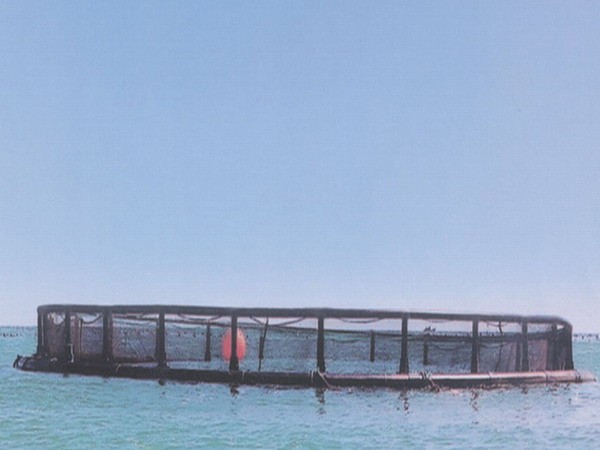- NEWS-
Floating cage for Tilapia Breeding in Brazil
Tilapia is a unique fish in that it can be grown on mostly vegetable protein, as opposed to other species which need a protein-based diet. Tilapia effectively converts vegetable protein into animal protein, and can be used in that way to lessen the environmental impact on wild fish populations, which have traditionally been used to feed higher-priced, more lucrative fish species. The Netuno project utilizes this unique quality of tilapia to structure their farm around a modern fishmeal plant in order to process the fish waste, producing high quality fishmeal and fish oil.
Built over a river and utilizing 10 meter-diameter cages, Xinhai provided the equipment to get the maximum yield from this site. Specially fitted metal nets protect the tilapia from predators such as pirhanas. Modern equipment was put in place to grade the fish during growth in order to prevent size differentials and improve FCR. A modern feeding system for feeding the cages significantly reduced labor costs. A modern harvest system allows workers to harvest the fish faster, up to 40 tons per hour, with less stress, using the screw elevator.
This project processes 5,000 tons of fresh tilapia fillets annually for the Brazilian market. It also supplies frozen product to hotels and restaurants in Brazil. A completely integrated operation, from breeding through production and processing, this cage farm utilizes best practices to really work right.
Built over a river and utilizing 10 meter-diameter cages, Xinhai provided the equipment to get the maximum yield from this site. Specially fitted metal nets protect the tilapia from predators such as pirhanas. Modern equipment was put in place to grade the fish during growth in order to prevent size differentials and improve FCR. A modern feeding system for feeding the cages significantly reduced labor costs. A modern harvest system allows workers to harvest the fish faster, up to 40 tons per hour, with less stress, using the screw elevator.
This project processes 5,000 tons of fresh tilapia fillets annually for the Brazilian market. It also supplies frozen product to hotels and restaurants in Brazil. A completely integrated operation, from breeding through production and processing, this cage farm utilizes best practices to really work right.

